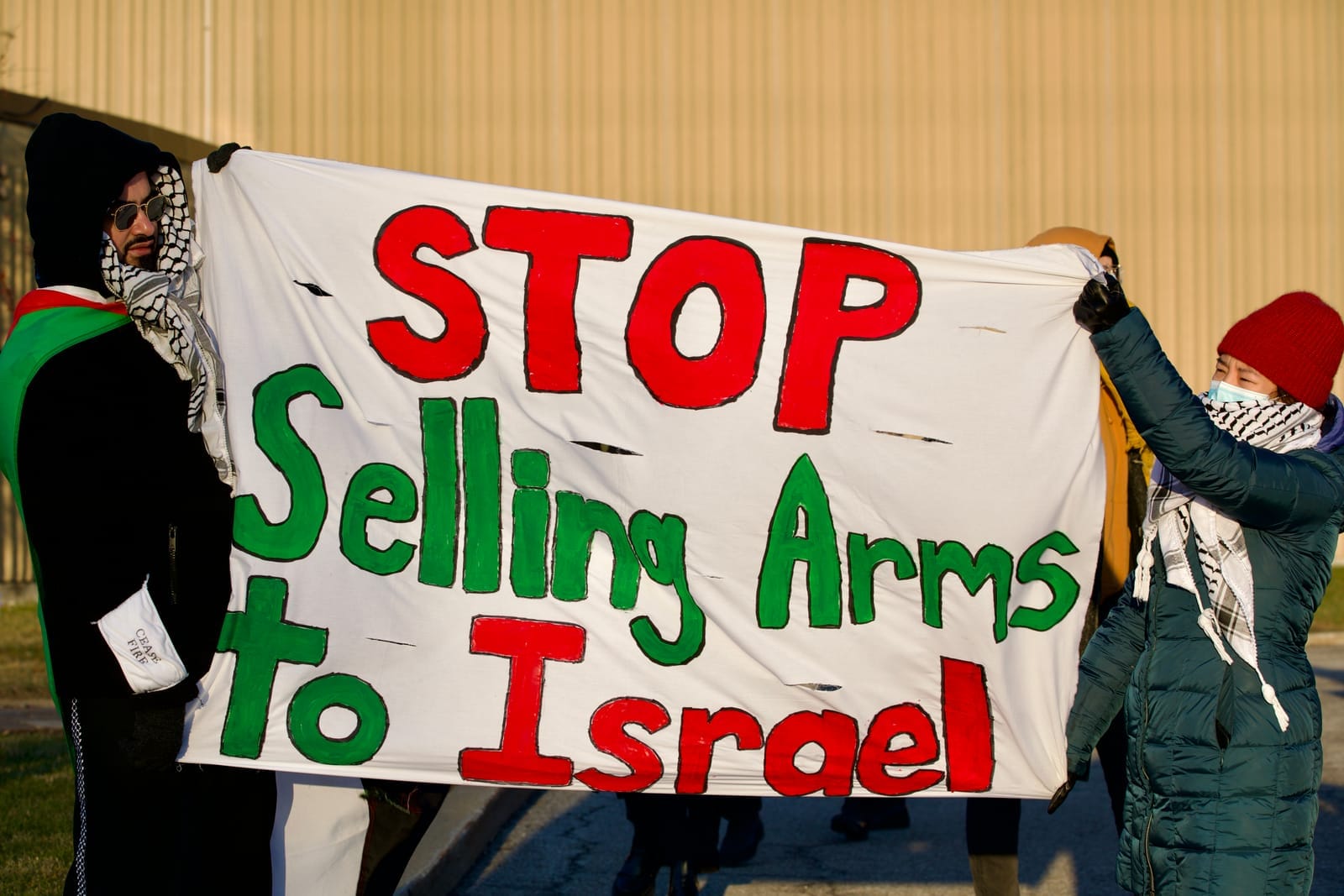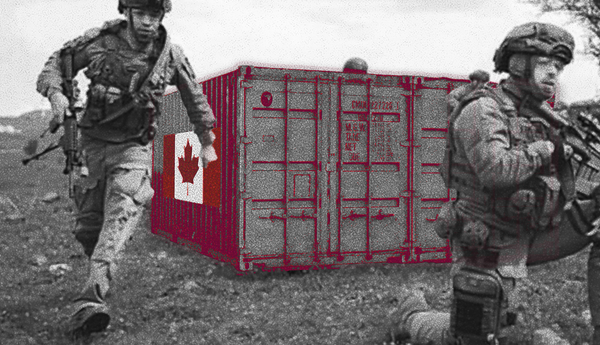Canadian manufacturers could export nearly $95 million more in military goods to Israel by the end of 2025, a new document reveals.
The document was posted online last week as part of the House of Commons Standing Committee on Foreign Affairs and International Development (FAAE) study into military exports to Israel. It lists some of the details of active export permits held by Canadian companies for controlled goods that will be used by purchasers in Israel.
In March, as the humanitarian crisis caused by Israel’s brutal war on Gaza deepened, the Trudeau government said it had stopped approving new export permits for military goods bound for Israel on January 8. But the government did not revoke existing permits, meaning that these goods are still flowing from Canadian companies to the Israeli state and Israeli arms companies.
The new document reveals that there are $107.7 million worth of active permits for military exports to Israel, of which 12 per cent — or $13.2 million worth of goods — has already been exported. That leaves $94.5 million in unused export permits with expiry dates as late as Dec. 31, 2025.
The vast majority of the “end users” listed in the data are arms companies in Israel. Seven entries have an end user listed only as: “For use in Israel.”
One of the permits, which allows the sale of magnetic anomaly detection software, has an end user listed as Israel’s Ministry of Defence.
But Kelsey Gallagher, a researcher with the arms-monitoring group Project Ploughshares, said more of these goods could end up in the hands of the Israeli military.
The Canadian government uses a “problematically narrow interpretation of end use,” Gallagher said. Canadian companies typically export components, not full systems, so the government defines end use as the point at which the component is integrated into the final product.
It is possible that those products, assembled by Israeli arms companies, are then sold to other users within Israel.
“Any transfer of any piece of equipment to Israel that could be used in the current conflict in Gaza is very problematic, and from our perspective, should not be authorized,” Gallagher said. “And it’s fair to come to the conclusion that a fair chunk of these would be integrated into systems later used by the Israeli military because they were being sent to Israel.”
A spokesperson for Global Affairs Canada did not respond to questions from The Maple about why the data provided to the committee was vague and inconsistent in listing end users.
The data table vaguely states that products assembled into full systems by Israeli arms companies “may also be used by Canada and allied nations,” but gives no specifics.
The names of the Canadian companies who hold the permits, as well as the names of their clients in Israel, were not listed in the data. Export permits are typically not made public in order to protect “commercial confidentiality,” deputy minister of foreign affairs David Morrison wrote in a letter to the committee which accompanied the data.
Four companies, however, have outed themselves as holders of export permits in letters made public by a federal court.
The Trudeau government has consistently claimed that it has only authorized exports of “non-lethal” goods, a term with no legal definition. But Gallagher said that any products related to aircraft — which could potentially be used by Israel to execute airstrikes in Gaza — are particularly problematic.
“We know that Israeli airstrikes have been one of the most — if not the prime — driver of civilian harm events across the Gaza Strip.”
Of the active Canadian permits, $5.2 million worth are for goods described as having uses for airborne computing, communication or radar systems. The FAAE data does not include Canadian goods that are first shipped to the United States before being integrated into other military products — such as the F-35 fighter jet — that could be destined for Israel.
There is also one permit that allows the export of $1.4 million in aluminum casings for fuel systems in anti-ship missiles.
On Saturday, Israel conducted an airstrike on a school that Palestinians were using as a shelter, killing 30 people. Israel’s war on Gaza and attacks in the occupied West Bank have killed 40,039 Palestinians since October, including more than 15,000 children.
Editor's note, Aug. 13, 2024: Nearly two weeks after this story was published, GAC spokesperson Jean-Pierre J. Godbout emailed the following statement: “Global Affairs Canada takes its obligation to provide the requested information very seriously but the department has a legal obligation to protect confidential information about the commercial activities of individual companies. The published information balances the obligation to protect confidential information with the imperative that it be as useful, transparent, and timely as possible.”
Emma Paling is a journalist and writer in Toronto. Her award-winning reporting has been published widely by CBC News, The Breach, HuffPost and Vice.






